Youth Resource
Human Dignity: The Marginalised
The videos, articles, and suggested activities in this Classroom Resource explore how biblical ideas of universal human dignity and equality have – and should still – motivate Christians to care for marginalised groups in society, such as refugees and people living in poverty.
Videos
-
On Jesus and the poor
Joel Edwards says that Jesus offered the poorest far more than comfort or protection.
Transcript
Jesus was amazing and his attitude to people just continues to give us great examples. And his attitude to the poor, particularly as captured in Luke’s gospel in the New Testament – Luke a doctor, but somebody who was very concerned about how the gospel related beyond the Jewish community, and very passionate about women, about the position of children and the outcasts. So Luke told us, perhaps more than others, how Jesus responded to the poor. He taught them, he fed them, he protected them from the powerful by challenging power, often in their presence. But he was still quite demanding, you know, he still threw down the gauntlet: if you want to follow me, you have to be my disciple, you have to take up your cross, you’ve got to follow me. He wasn’t saying that to the powerful and the privileged alone, he was saying that to the marginalised and the poor.
And so what we find in Jesus’ response to the poor is an element of tough love, real truth. And a real truth which constantly reinforces this idea that God is calling us to something really quite majestic and quite elevated, and that that majestic and elevated calling – to act for the common good, to act out of selflessness – is not just something reserved for the powerful and the elite. It is a privilege to which even the poor must aspire, and he challenges them to do that because, in that aspiration to rise above poverty, to rise above marginalisation, we discover what it means to be truly human. And I think that’s a privilege Jesus would not deny the poorest of the poor. So yeah, it was tough love to the rich and the powerful and the wealthy, but actually he didn’t hold back from offering that calling to dignity to the very poor.
close -
On practical care
Joel Edwards’ motivation for fighting extreme poverty has ancient roots.
Transcript
I’ve had the privilege over many years to be involved in a variety of Christian ministries, which is – which extends itself beyond the pulpit and the pew to try and bring the good news about Jesus to the pavement of society, if you like. And this is about conscientising, bringing awareness to Christians, of a long history and tradition of care. This is about practical care, be it in challenging poverty as we have done, be this about challenging corruption, or indeed human rights – these massive issues facing society. And it is virtually impossible to do that as a Christian in the here and now, in the 21st century, without some reference way back to the dawn of these biblical imperatives from the Old Testament prophets: “He has shown you, o man, what is good. What does the Lord require from you? Do justice, love mercy, walk humbly with God.” That was our mantra as we fought corruption and stood with individuals around the world in civil society to fight extreme poverty.
And so always one stands in the immediacy of the problems and the enormity of the problems in the 21st century against a backcloth of centuries of prophetic agitation, of this insistence of God that a higher quality of life through honesty and caring, living up to the image of God, is always behind you. You always have to look and remind yourself that this is true religion, and that this true religion has been seeking to enforce itself in Christian faith for three millennia.
close -
On widows and orphans
Iain Provan probes the Old Testament’s emphasis on looking after the vulnerable.
Transcript
In terms of looking after those marginalised people, as we would nowadays call them I guess, those who are vulnerable in society – so widows, orphans, foreigners, who of course are famously vulnerable in the world we live in as well – it’s rather extraordinary, the extent to which Old Testament law pushes people to treat those folks well, appropriately, look after them.
In fact, the king is particularly tasked with the job of looking after the marginalised, which in the ancient Near Eastern context is rather extraordinary because you basically have a very hierarchical society in which the king is a demi- or semi-god and the peasants are the peasants, as it were. So one of the great things in the Old Testament, one of the motivations is, remember that you were slaves in Egypt. Remember that you were once those people. Therefore, you should look after those people.
close -
#EndCovidForAll
Tim Costello shares about the importance of focusing our attention on the pandemic’s impact on the world’s most vulnerable.
Transcript
TIM COSTELLO: There are some fundamental things all humans on this planet share. We all breathe air. We all talk to one another, laugh, hug one another. Humans all sneeze. Humans love to dance together – far better than dancing alone. But COVID-19 has changed the way of being human. The things that we would normally do mean we put others at risk. And physical distancing – absolutely necessary – tragically has become social distancing: humans scared to hug, to dance, to laugh and talk together.
Well, it’s important to physically distance – that’s why our shopping malls are closed, and our churches, and our football games – just to be life-saving good citizens to others. But how do you physically distance in a slum? Whether it’s in Brazil or in India – 60,000 infections a day now in India, it’s rushing through the slums. How do you physically distance when you’re in the Rohingya Refugee Camp, Cox’s Bazaar – I’ve been there – ten families sharing one pit toilet, walking huge kilometres just to get water, how do you wash your hands and physically distance?
That’s why ‘End COVID For All’, which particularly marks World Humanitarian Day on August the 19th, is so important. It’s to recognise that everyone – the most vulnerable and poor – are God’s children, with great dignity. COVID doesn’t end for any of us until it ends for all of us, until it ends for them too. Yes, our national borders need to be shut, but not our hearts – that would close down our humanity.
In ‘End COVID For All’, we’re inviting you to join a whole lot of people to say: “We are thinking of others.” Here is the mask that I’ll be wearing – #EndCOVIDForAll – you can go online and get a filter mask, a virtual mask, and take a picture of yourself and share it. ‘End COVID For All’ is about all of us literally being in this together. It doesn’t end for any of us until it ends for all of us.
close -
An Empty Plate: Jack’s Story
Jane Corbett shares a powerful story of a seven-year-old boy living in poverty in Everton, Liverpool.
Transcript
JANE CORBETT: I was working with a family where the little lad was found by his mum – his mum doesn’t drink, doesn’t smoke, hasn’t got a flat-screen television – was found peeling wallpaper off the wall to eat at tea time, because they literally hadn’t got anything to eat. This is a couple of years ago, and it’s still happening now – not to this particular family, but to others. And so I supported them and helped out there.
And then I said to the mum, “How does your little one cope with the emotion of all this? Does it make him very angry, is he very depressed about it, how does he get his emotions out?” I said, “Is he any good at drawing, or drama?” She said, “He loves drawing.” So I said, “Would he like to do me some drawings about it?”
So she had a chat with him, and he said, “Yes – if it helps other kids in Liverpool.” So I said, “Brilliant.” And I said, “What are we going to call you? Because we can’t call you by your real name because it’s a bit too scary if the right-wing press are outside your door.” He said, “I want to be called Jack, like Jack Sparrow!” So I said, “Okay, we’ll call you Jack.”
So he drew me a picture of an empty plate and he said, “Do you see food?” He drew me a picture of, again, an empty plate, that then had ‘Africa’ and then ‘Liverpool’ over the top of it, and then he said, “Because I’ve heard kids in Africa are hungry too.”
And then he came up with this quote – he was seven at the time – he came up with this quote – and this little kid thought he was worthless, so if you go back to the Christian faith, God is saying “You are really, really important” and I constantly say that and text his mum because she lives off these texts saying “You’re a cracking little kid Jack, keep going” – he thought he was worthless, but he came up with this brilliant quote that said, “Listen to me. You’re grown-ups. This is bad. You are being bad, unless you do somethink (with a ‘k’) about it.”
close
Articles
-

At Christmas, hospitality can link us to a greater truth: nobody is disposable
Simon Smart reflects on the Christmas story as a powerful motivator for hospitality.
-

What does the church stand for?
Simon Smart on this year’s Met Gala, and the church’s reputation for opulence – and charity.
-
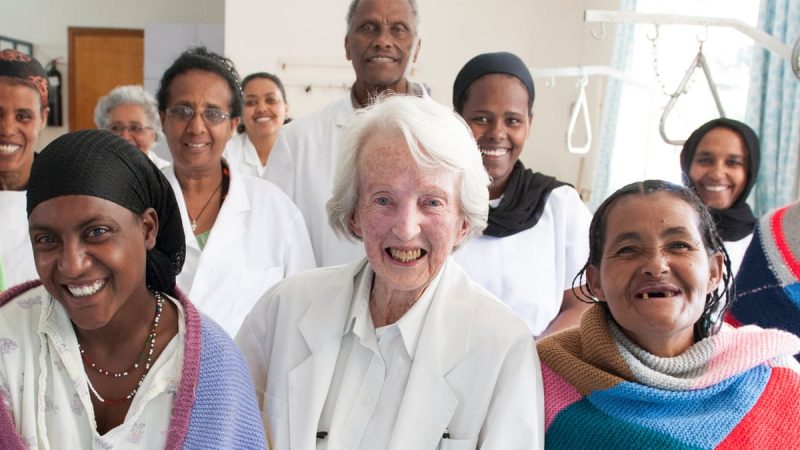
Vale Catherine Hamlin
Mark Stephens reflects on the life of Catherine Hamlin, and how her faith drove her to serve Ethiopian women suffering obstetric fistula.
-
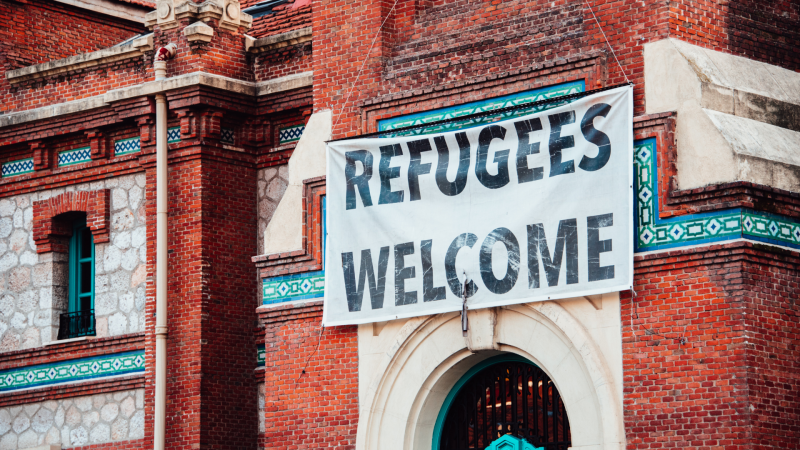
Loving the stranger in our midst
Mark Glanville explains how the Old Testament advocates radical welcome for asylum seekers.
-

“Bring them home to Bilo”
Justine Toh on how the Murugappan family has found a home in our hearts and is reminding us of our shared humanity.
Engage
- What do you think it means for someone or a group of people to be ‘marginalised’? Brainstorm some groups that you think are sometimes marginalised in our society.
- Look at the following cartoons from Australian newspapers, and complete the See, Think, Wonder Thinking Routine:
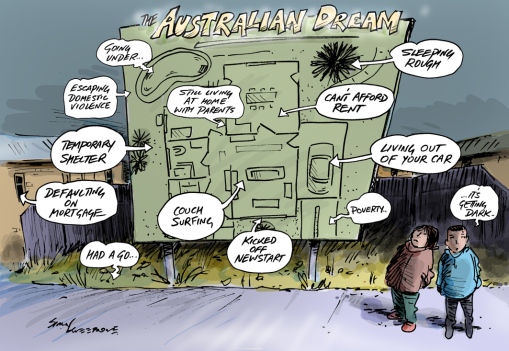
Author: Simon Kneebone.
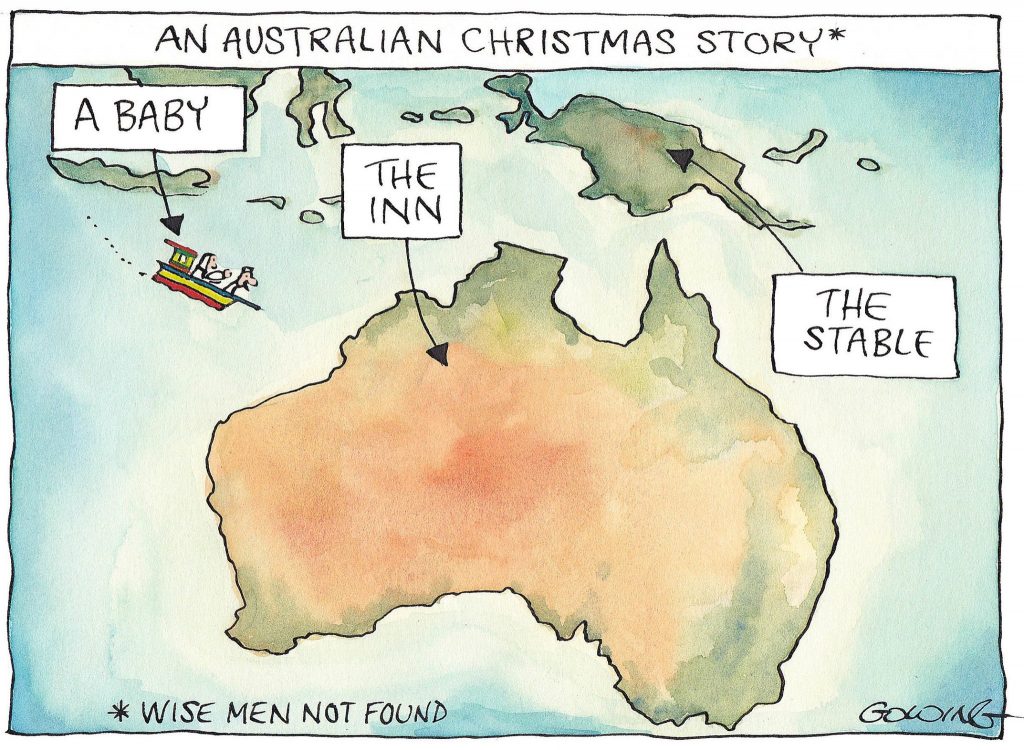
Author: Matt Golding
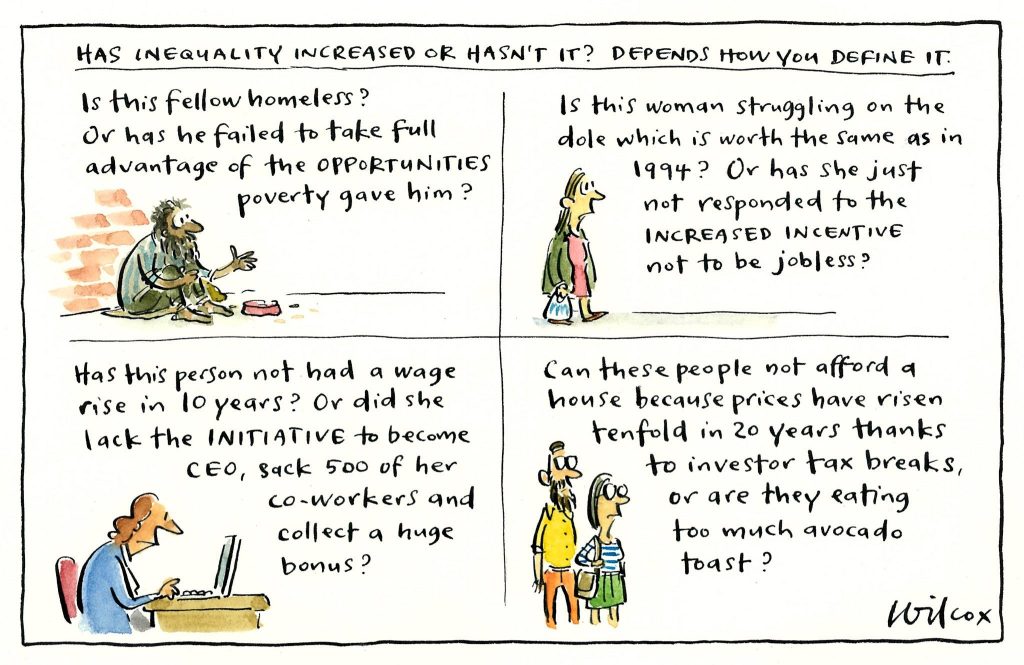
Author: Cathy Wilcox
- What do you see?
- What do you think this cartoon is trying to communicate?
- What does it make you wonder?
- To what extent do you agree or disagree with the statement ‘Christians are very active in caring for the marginalised in society’? Write your response, giving one or two reasons, on a post-it note which will be displayed (with all other students’ responses) in the classroom.
Understand & Evaluate
- Watch the videos – On Jesus and the poor; On practical care; and On widows and orphans – and fill out this table on the attitude different parts of the Bible display towards the poor and needy.
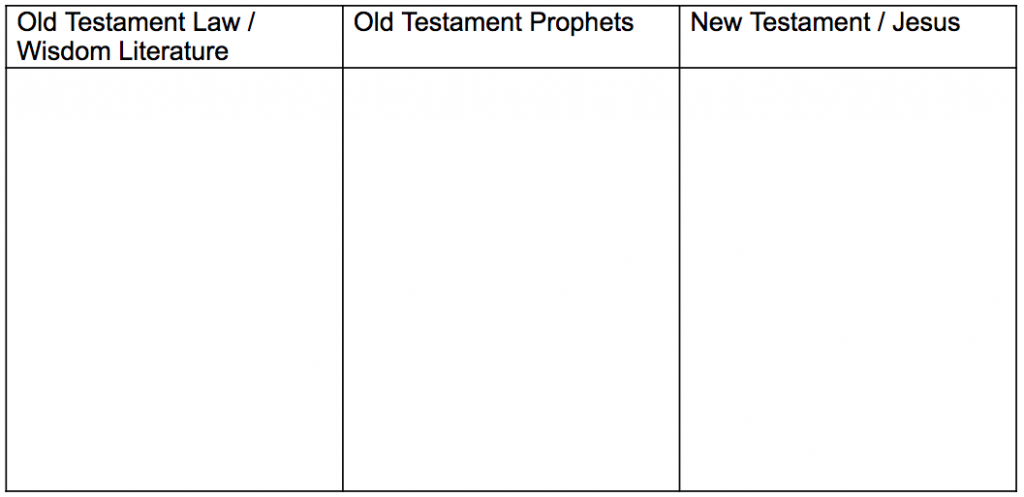
- What is one thing that stands out to you from what was said in these videos?
- Read Simon Smart’s two articles At Christmas, hospitality can link us to a greater truth: nobody is disposable and What does the church stand for? and Mark Stephens’ column Vale Catherine Hamlin.
- Choose one of the stories in these articles that most strikes or inspires you. Share your choice – and why you chose it – with another student.
- What light does your chosen story shed on how Christian faith can influence the way people treat the marginalised in society?
- Read Mark Glanville’s article Loving the stranger in our midst and Justine Toh’s column Bring them home to Bilo. What biblical ideas do they suggest can motivate our treatment of refugees?
Bible Focus
- In pairs, read one of the following sets of Bible passages, and summarise what you discover in the table in ‘Understand & Evaluate’ above. Share your findings with two other pairs who looked at different sets of passages.
- Old Testament Law: Exodus 23:9; Leviticus 19:34; Proverbs 14:31; Proverbs 31:8-9
- Old Testament Prophets: Isaiah 58:1-12
- New Testament: Matthew 25:31-40; James 1:27
- Find another Bible passage that talks about how the marginalised should be treated, and draw an image to represent its message.
Apply
- Write a letter to the person whose story you chose in ‘Understand & Evaluate’ Q2a, sharing with them why their story stood out to you, what you appreciate about their work, and any questions you have for them.
- Watch either #EndCovidForAll or An Empty Plate: Jack’s Story. Design a social media campaign for #EndCovidForAll or to end poverty in Liverpool using concepts from the videos, articles, and Bible verses explored in this lesson.
- Choose one of the marginalised groups you brainstormed in ‘Engage’ Q1, and make a list of some things your school community or you as an individual could do to help that group.
- Think back to what you wrote on your post-it note at the beginning of the lesson. Would your response change now? Why or why not?
Extend
- Find either a church or a charity founded on Christian values that is actively working to help a marginalised group. Then, either:
- Interview someone from the church or organisation about what their work involves, and what motivates them to do it, OR
- Write a newspaper report on the work of this group.


